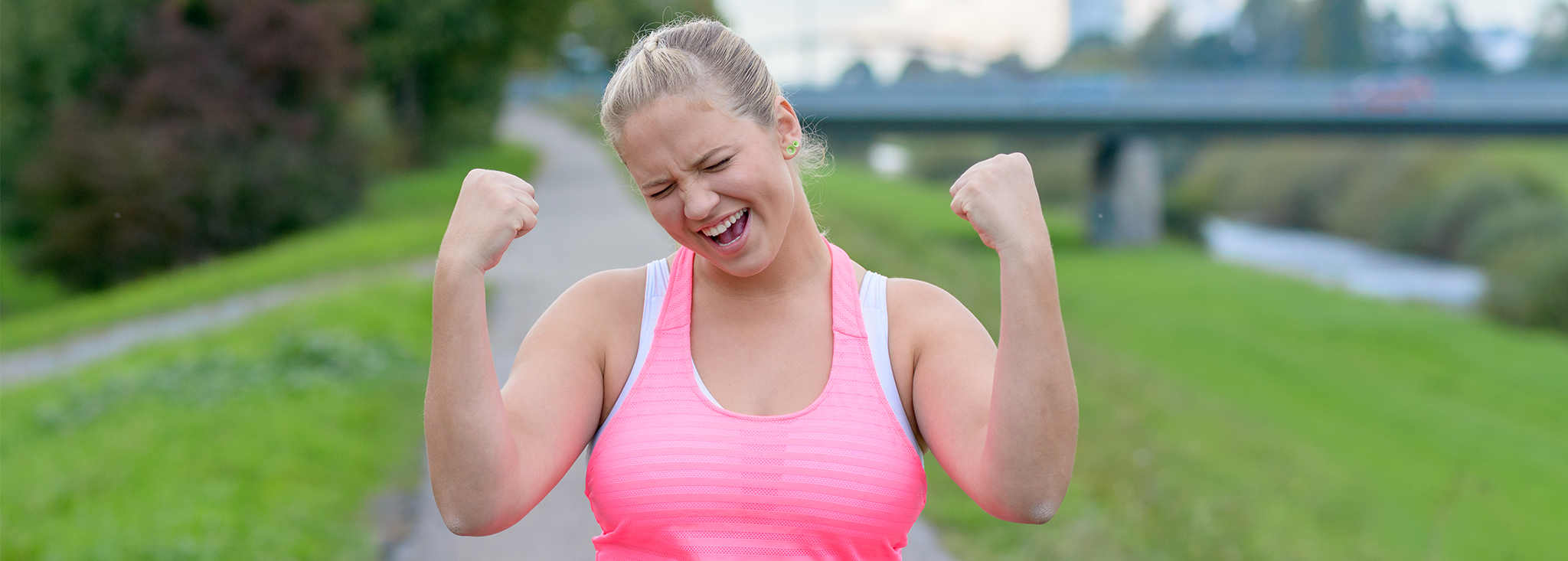Body Image: You Don’t Need to be Skinny to be Fit
Compared to people living without diabetes, those living with type 2 diabetes might have a harder time practicing body positivity. This is because living with a chronic illness can make it hard at times to view yourself as being perfect in your own right. While it’s important to work at being healthy and improvement is always a goal, remember: looking a certain way does not necessarily reflect health. Plenty of extremely active, fit people look decidedly “average” by the insane standards of our current society and they are kicking butt every day. You don’t have to be stick thin to be thriving and living a healthy, fit, fun-filled life.
Social Media Influence
Living with a disease every day can be stressful. Adding in societal pressure to look perfect and publicly project that perfection on a daily basis can make it worse. Social media plays a huge role in this, especially when it comes to fitness, which has in and of itself become a major social media mainstay. So many of us are misled by the way others perceive themselves on Instagram and are inclined to feel bad about ourselves, especially when it comes to the way we look and how that relates to our relationship with fitness.
Social media and the pressure to look a certain way affects everyone, but women are disproportionately affected in comparison to men. Plenty of this has to do with issues of body image and expectations placed upon women. Studies also show that in general, people who use Facebook have lower self-esteem when compared to people who don’t.
What’s important to understand is that you control your life and you get to choose the ways you want to be healthy. Take that in stride and don’t make social media your crutch! Relish in the opportunity to do your own thing! Above all, trust that not everything you see online is what it seems and that in truth, aside from inspiring you to be more active, it really doesn’t need to have a bearing on your life.
All Body Types
Like body image issues, diabetes doesn’t discriminate—it affects all body types. Even though there are boundless unfair assumptions associated with the condition that stipulate things like: only unhealthy people are diagnosed with diabetes or that people with diabetes must be overweight. The burdens of social media influence don’t usually help with this. Even campaigns and mantras like “Strong is the new skinny” are polarizing because they preach one notion but are practicing the opposite, featuring women who all fit a size four or smaller. We know there are women out there who fit and don’t fit that mold — Serena Williams, Danielle Brooks, Dascha Polanco and Ashley Graham come to mind.
It is easy to get disheartened in regards to fitness when these are the parameters the world sets for us, especially when you have a condition like type 2 diabetes (T2D) that forces you to be extra mindful about your health. But you have to make the decision for yourself to beat the statistics, embrace your body as it is, and push to be better in terms of health and fitness on your own terms, not anyone else’s.
Exercising already comes with its benefits, and being “skinny” doesn’t have to be one of them…
Actually, we know regular exercise results in:
- Overall health: good diabetes management can and should include getting your heart rate up from time to time, shooting for 30 minutes of moderate exercise five times a week
- Mental wellness: getting active is a wonderful and often neglected way to treat stress, depression, anxiety and overall negativity
- Lower rates of obesity—more than 90 percent of type 2s are overweight or obese
And exercise should be fun. Even if it means taking things step by step.
Getting Started with Working Out
Make a list of fun things you’d like to do to get active—working out doesn’t have to mean logging hours upon hours at the gym, it can take a small amount of effort. Here are a couple of ideas to help you get going:
- Hiking
- Classes like zumba, barre, or yoga
- Swimming
- Join a local adult athletic league
- Tennis
- Running or walking
The first step to getting fit is usually the hardest and sometimes you have to take a step back and remind yourself that results come in time and taking it day by day is the best strategy. With perseverance and a willingness to try new things, working your way to being fit, healthy and happy are all totally within your reach.
Don’t Compare Yourself to Others
If you’re someone who’s struggled with body image issues, it can be hard to see your progress, especially if you perceive others making progress “faster” than you. You shouldn’t measure your progress using someone else’s ruler—it’s not fair to you. You are running your own race. Plus, only seeing someone’s progress doesn’t give you insight into what that person went through to get to where they are.
If you want to keep a log on how your fitness journey is going, take photos of yourself. Set a time each week to document your journey and be kind to yourself if you don’t meet your goals right away. Small progress is still progress.





